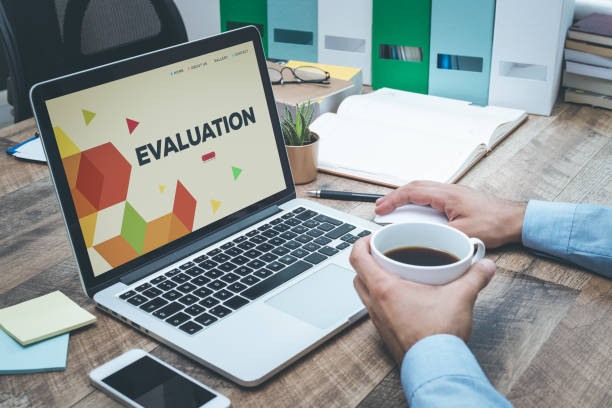10+ Insights On Education Evaluation You Can’t Miss

Introduction
In today’s rapidly evolving educational landscape, the importance of understanding Education evaluation cannot be overstated. This process aims to elevate the overall educational experience of students by enhancing teaching methods, fine-tuning the curriculum and educational content. Yet, what exactly does this term entail? And why should educators and students alike care about it?
Education Evaluation: Setting the Stage for Understanding
The term “Education Evaluation” pertains the procedure of assessing different aspects of the educational system.
From evaluating individual student performance to assessing entire curriculums, this concept covers a broad spectrum of assessment types.
Why is Education Evaluation Important?
1. Ensuring Quality of Education: Education evaluation ensures that the education system meets set standards and quality metrics.
2. Identifying Areas of Improvement: Through evaluations, educators can identify what’s working and what’s not. This helps with a more precise approach to enhance teaching and make the curriculums more targeted.
3. Boosting Student Confidence: Students can gauge their progress and understand their strengths and weaknesses.
4. Informing Policy Decisions: Governments and educational boards can make data-driven decisions.
Types of Education Evaluations
Formative Evaluation: Conducted during the learning process, it focuses on understanding the learning progress and making immediate improvements.
Summative Evaluation: Typically conducted at the end of a course, it assesses the course or program’s efficacy.
Diagnostic Evaluation: This identifies students’ strengths, weaknesses, knowledge, and skills before instruction begins.
Modern Tools for Education Evaluation
With the modern technology, a lot of tools have cropped up and thoroughly transformed the way in which assessments in the field of education are conducted.
– Digital Assessment Platforms: Websites and apps that allow educators to create, distribute, and assess tests online.
– Learning Management Systems (LMS): Platforms like Blackboard or Moodle help track student progress.
– AI-Powered Analytics: With the power of AI, educators can get deeper insights into student performance.
Challenges in Education Evaluation
Cultural Differences: What might be effective in one culture might not necessarily work in another.
Rapid Technological Changes: Keeping up with the latest tech trends can be a challenge.
Bias and Subjectivity: Evaluations can sometimes be swayed by personal biases.
Case Study: The Role of Education Evaluation in Finland
Often touted as having one of the best education systems in the world, Finland places a strong emphasis on regular and thorough evaluations. But what can other countries learn from them?
1. Regular Feedback: Instead of heavy reliance on standardised testing, regular feedback is emphasised.
2. Teacher Evaluations: Teachers are routinely evaluated to ensure they’re delivering the best education.
Future Trends in Education Evaluation
The future looks bright, and with advancements in technology, the following trends are emerging:
– VR and AR in Evaluations: Virtual and augmented reality can offer immersive testing environments.
– Predictive Analytics: Leveraging big data to predict student performance trends.
– Gamified Assessments: Making evaluations fun and engaging for students.
Tips for Effective Education Evaluation
1. Stay Updated: Regularly update evaluation metrics and tools.
2. Seek Feedback: Not just from students, but also from fellow educators.
3. Use Multiple Evaluation Methods: Don’t rely solely on tests; consider projects, presentations, and other methods.

FAQs
- Why is Education evaluation crucial in modern times?
With the fast-paced evolution of the education sector, regular evaluations ensure we’re not just keeping up but excelling.
- How often should evaluations be conducted?
While there’s no one-size-fits-all answer, regular intervals, such as quarterly or biannually, can be effective.
- Do all countries approach Education evaluation the same way?
No, each country has its own set of standards, tools, and methods. It’s essential to adapt evaluations based on cultural and regional nuances.
- What’s the role of technology in Education evaluation?
Technology, especially in recent years, has played a pivotal role. From digital assessment platforms to AI analytics, tech has revolutionised evaluation methods.
- How can biases be eliminated from evaluations?
Having a set of clear, unbiased standards and multiple evaluators can help in reducing biases.
- Are traditional testing methods becoming obsolete?
While traditional methods are still in use, there’s a clear trend towards more holistic and varied evaluation techniques.
Conclusion
Assessing the education’s worth is a fundamental part in the domain of learning. Apart from guaranteeing excellence and efficiency, it also opens doors to enhancements and fresh ideas. By understanding its complexities, teachers, learners and decision-makers collaboratively shape a better and promising future in the field of education.
External Links/ Sources:
